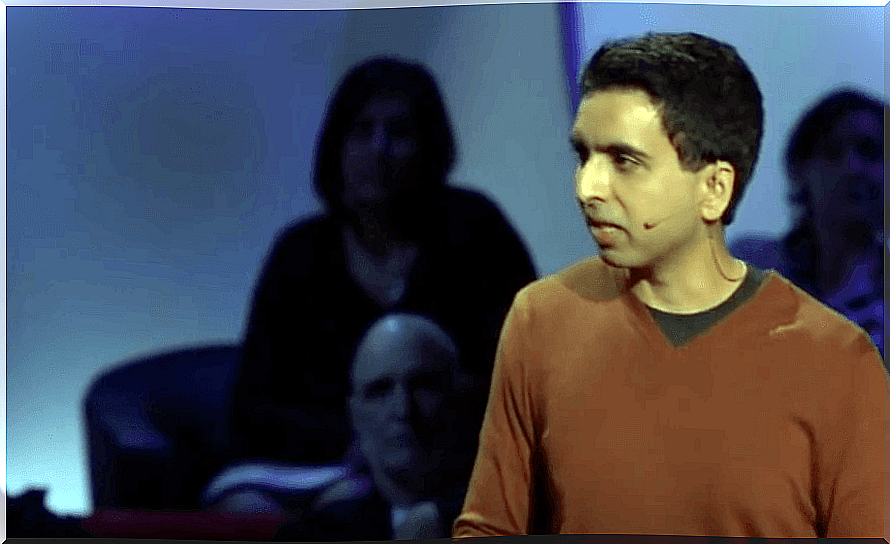The Thought Of Salman Khan, Princess Of Asturias For International Cooperation

If we look at the syllabus that is studied in colleges, institutes and even in some careers and universities we will realize that in recent decades it has not changed much. Society has done it, the media have done it, but the content has hardly changed. Thus, the teaching world goes one way and the real world seems to go the other way. For this reason, among other reasons, today we want to get closer to the thought of Salman Khan.
A little girl died recently at recess because she choked on a piece of ham and none of her classmates knew how to make the appropriate maneuver to help her. Telephones are prohibited in many institutes, because prohibiting is simpler than educating in use. In many careers, models and ways of proceeding that have not been used by any company for years are still taught.
Salman Khan: a star in a dark sky
In the face of this darkness, from time to time particular initiatives emerge that are successful. In many cases, accidentally or unexpectedly, as happened to Salman Khan. Born in the United States to an Indian mother and a Bangladeshi father, he graduated from MIT and began working as a hedge fund analyst. She was in these when she accepted the challenge, back in 2004, to teach her cousin math over the phone!
A difficult challenge without a doubt, but one in which he was successful. So much so, that he soon began to accept more similar commissions. The ball grew until he decided to open a channel on the famous YouTube video platform. Imagine the possibilities that this medium opened up for him, in front of a telephone … Currently, he is the director of a non-profit company with 200 workers and more than 50,000,000 million students.
There are just hours left until the Princess of Asturias Award for International Cooperation is awarded and today we wanted to know a little more about what you think about current education. We will do so by following the five principles that are essential to him.
Each student has his rhythm … and his time
Ten minutes in a class are enough to understand that each student learns at their own pace. Also that each student feels more comfortable with some subjects or a way of teaching.
We see those who need a very directive teacher, but very autonomous when looking for information. Others who enjoy more when the content is closed and explained with a pause. Guys with difficulties, others who get bored because the pace is too slow for them.
Therefore, optimizing education means individualizing as much as possible the educational path of each student. On the other hand, for Salman Khan it would be more correct to do the courses by levels or speed of learning rather than by age.
On the other hand, we see that most schools and institutes hold classes in the morning. We also see that for many children this is not the best time to learn. A contradiction that may be difficult to resolve, but in many cases it would substantially improve performance.
Short classes: we are not able to hold our attention for a long time
Most current classes, in almost all fields, last about an hour. However, the videos on most educational channels on platforms such as YouTube do not last more than 20 minutes.
Well, if we go to the studies that are published on sustained attention, it seems that the latter fits much better with the functioning and performance of this basic psychological process. On the other hand, we see a great advantage in this type of channel: the student can stop the video whenever he wants and replay those parts that he has not understood.
Many students would understand their teacher if they could see the same explanation two or three times. On the other hand, when they do not have this possibility, they disconnect and miss the rest of the class. Technology could help prevent this from happening.
Technology can improve teaching without increasing expense
Many schools still view technology with suspicion, as a competitor that is best kept out of the classroom. However, in line with the previous point, well used can be a great ally for learning.
Before we talked about videos and their advantages for those students who need, to understand, a slower speech. Another aspect in which it could be a great help due to its ability to give reinforcement, increasing or consolidating motivation through gamification. Yes, get closer to those that many have defended, turn learning into a game; or, rather, maintain this philosophy beyond the earliest childhood.
Associative learning: fragmentation is forgetting
Perhaps, for the writer, this point is the most important. I remember a student who said a very sad phrase to me a short time ago: “My teachers don’t speak. ” I remember my physics teacher, years ago, asking us in class if we had seen integrals with her math partner. The picture has changed little.
In this sense, the philosophy that prevails and is projected is that each subject is a kind of drawer, totally dissociated from the rest. What we know about our memory is that it is, in essence, associative and synthetic ; that is to say, it remembers much better those knowledge that it can associate, that I was able to save, in some way, as a unit.
The five, in real life, does not work
An architect cannot deliver a house with half the rooms. A surgeon cannot leave an operation by halves. In most professions, an average job well, with mistakes, is worthless.
Salman Khan, in this sense, thinks that students should perfectly lay the foundations before continuing to accumulate new knowledge. Simply put, it bets that the student learns better what they have scored a five on, in that half that they don’t know and that has already been given, before they continue to advance in the subject. In this way, as happens in real life, until the “job is finished”, the next one is not started.









